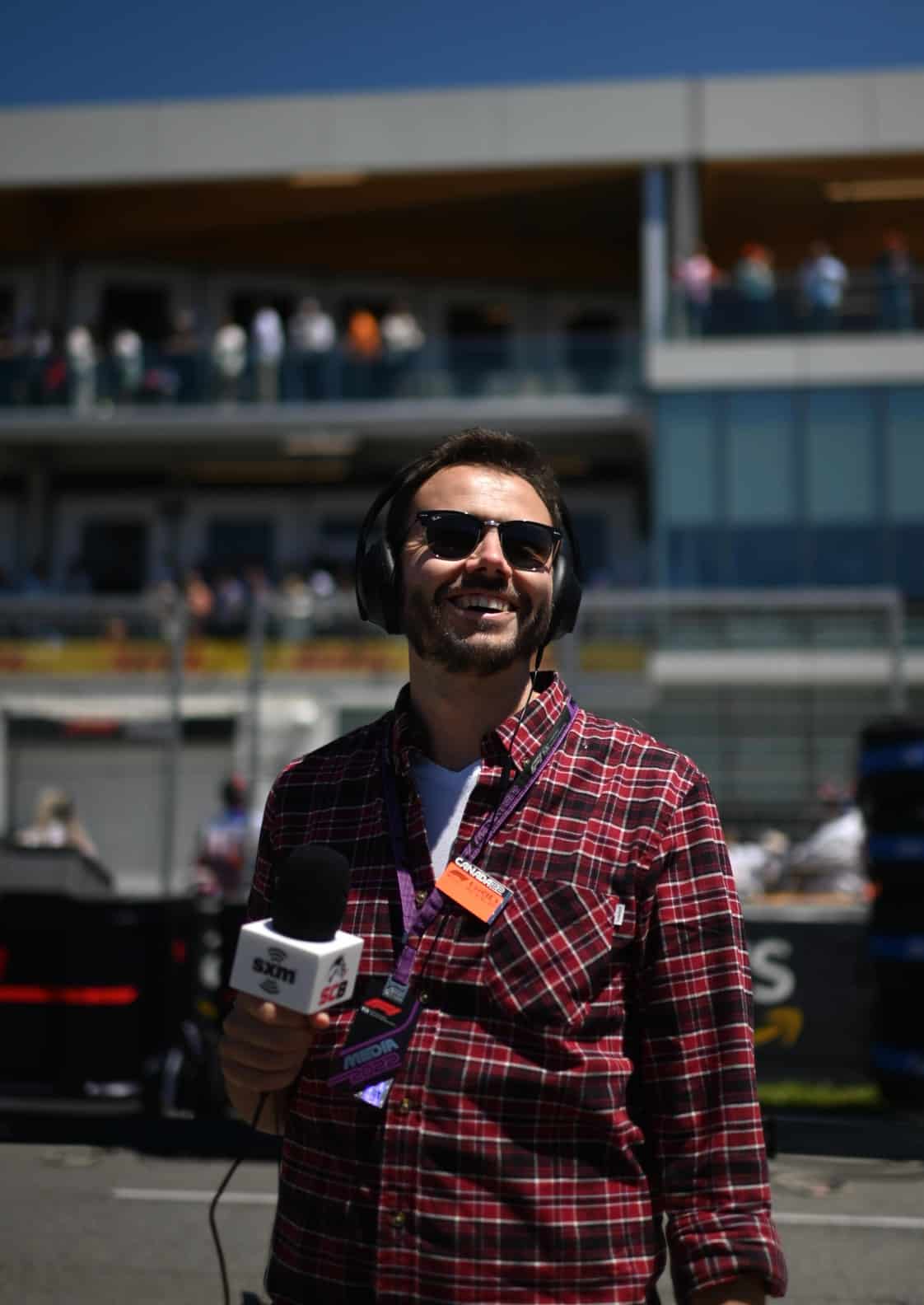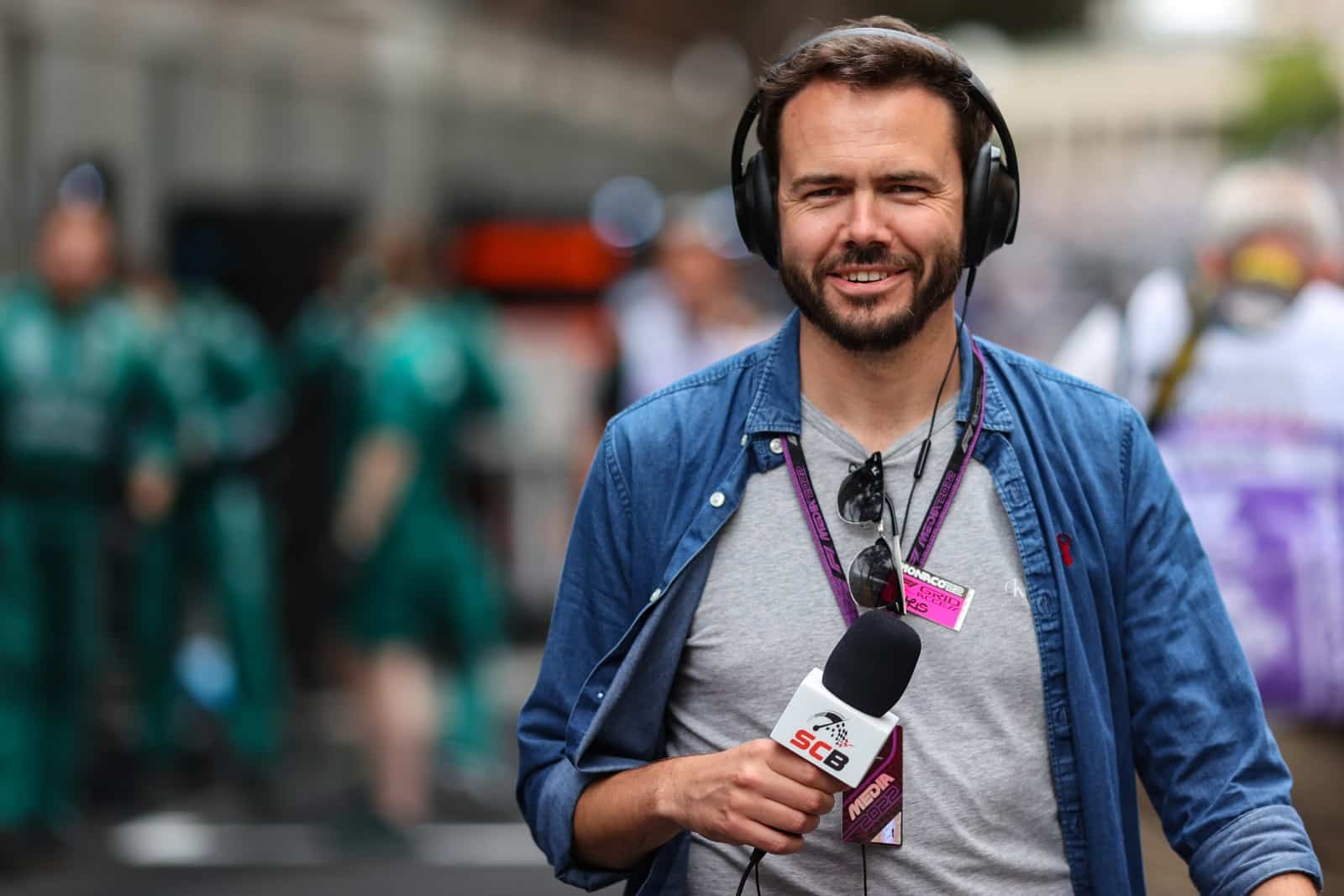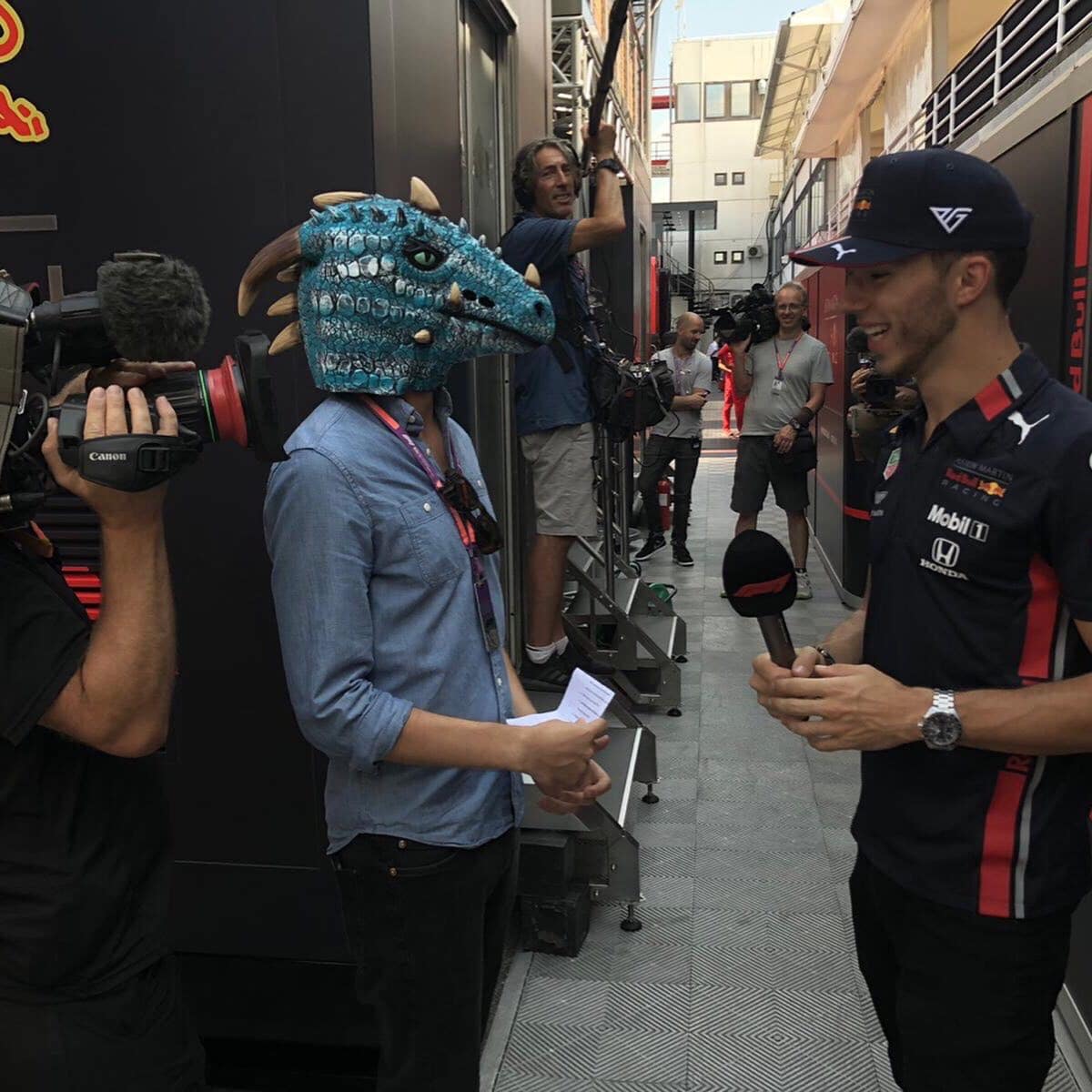

INSIGHTS
Chris Medland, Motorsport Journalist
“I want to help connect fans to the sport they love and tell them as much as I can about it”
Chris is a freelance Formula 1 journalist with permanent FIA accreditation for the Formula 1 World Championship. Attending every race and test on the Grand Prix calendar he currently writes for the likes of RACER.com and RACER Magazine, as well as Motor Sport Magazine and Formula1.com as well as a variety of other outlets, teams and partners.
As a broadcaster he is a presenter and reporter for SiriusXM in North America for whom he conducts grid walks, driver interviews and analysis as well as hosting a weekly show, having previously done similar work as a pundit for MBC Action’s F1 coverage in the Middle East. In addition he has also reported for F1’s own platforms. Chris also featured as a talking head in the first season of the Netflix documentary ‘Formula 1: Drive to Survive’ produced by Box to Box Films.
Where it all began
I remember watching Formula 1 on TV when I was a kid and thinking it was really exciting and exotic and just a whole other world! I loved it. I learned very early on that although I loved sport, I wasn’t a sportsman. I wasn’t good enough. So instead, I decided I wanted to be a sports journalist – the next best thing!
I went to university to study Sports Journalism and on one of the first days of the course the lecturer asked the whole class what sport each person wanted to cover that year (and beyond!). The first person said football, and so did the second, the third person and so on. If I had been the first person to answer the question, I would have also said football but I’ve never liked being the same as everyone else so I said Formula 1 to be different.
At the time, I thought it was a stupid idea because it just seemed so unrealistic. There’s so much football in the world to cover, but there’s only one Formula 1 championship. But from then on I tailored my degree to F1 and here we are…
My role in 10 words or less
Writes and talks about F1 (for anyone who will pay!)
Why what I do is important
On a personal note, it pays the bills, and it doesn’t feel like a real job most of the time! But of course, there are aspects, like any job, that are hard work.
I think it’s important to other people because most aren’t as lucky as someone like me who gets to live out their passion. They work hard to earn a living and then they need time to really enjoy themselves and a lot of people follow sports for that. I want to help connect fans to the sport they love and tell them as much as I can about it, answer questions and bring them closer to it in any way I can.
In short: I think my job is important in connecting fans with the sport and making it more enjoyable.

My first race
My first F1 race as a fan was the 2005 French Grand Prix and I remember it was so damn hot.
The first one I worked at was the 2008 British Grand Prix. I was still a student and volunteering in the Media Services team, so I was signing in journalists, photographers, and media guests at the Media Desk. I really wanted to just get an understanding of how the media works at an F1 weekend, so volunteering was a great opportunity.
However, my first paid journalism role at a race would have been Belgium in 2012.
My most challenging moment
Reporting on the death or serious injury of a driver. It’s so important to be accurate, trustworthy, and sensitive in that situation whilst also processing what you’ve just witnessed yourself. The first incident like that I had to report on was Jules Bianchi in 2014 in Suzuka. It was so horrible and definitely one of the most challenging moments of my career.
”Being right is always better than being first, but being a good person is more important
As a journalist it’s really tough to work in a situation like that as it’s emotional but also difficult to do your job. What is relayed to us as official information would often change at short notice so you can’t be certain of the accuracy of what you are being told. You need to be full-on and alert for updates 24/7, especially if you work online. If something happens and some news breaks at a certain time, you want to be on it instantly. You aren’t sleeping, so as not to miss an update. It’s full-on and both emotionally and physically draining.
My proudest moment
A strange one but my proudest moment is something that didn’t actually come to anything. I was quite young and on the verge of breaking my first massive story [Fernando Alonso entering the Indy500] which doesn’t happen that often.
I managed to source that story and get everything all agreed and lined up but the [Alonso’s] team requested a hold whilst they ironed out some issues and contracts. We obviously agreed as we didn’t want to derail the deal being completed either.
But then someone within the team sent out the press release announcing the story before we could run it, so the hard work was of no use in the end. It was quite gutting.
An F1 memory I’ll never forget
My first grid walk in Australia 2019 and just going out there and interviewing people out on the grid. I remember seeing Martin Brundle do his iconic grid walks on the TV when I was younger, so going out and doing something similar was really cool.
How I’ve worked with SMG
I’ve partnered with SMG to help promote a few race weekends in the past.
This year in Baku they arranged, on behalf of the promoter, for me to commentate at the circuit which is always quite fun, and I’ve done that since 2017. In the past, I’ve hosted Pitlane Walks and educational seminars for local media to give them a bit of background into this huge spectacle coming to their city.
For other circuits, I’ve worked with SMG to support with filming promotional content. One of the most memorable SMG assignments was interviewing a number of drivers ahead of the US Grand Prix in 2019.
It was around Halloween, and I had to show up with these weird dragon masks and say like “who wants to wear this?” And there’s a picture of me interviewing Pierre Gasly when he’s at Red Bull and I’m wearing a creepy horse’s head… very weird but a lot of fun. The fans seemed to like it!

My advice to anyone wanting to get into Sports Journalism
Being right is always better than being first, but being a good person is more important. Whatever you do, do not screw people over to get far in journalism. You might get quite far but this is a busy, tough job and can quickly become a very lonely one if you’re not a decent person.
Look at it less as being a journalist, and more as a human trying to tell another human’s story – that helps you remain fair, because they should at least understand when you report negatively or problematic things for them, even if they don’t like it.
